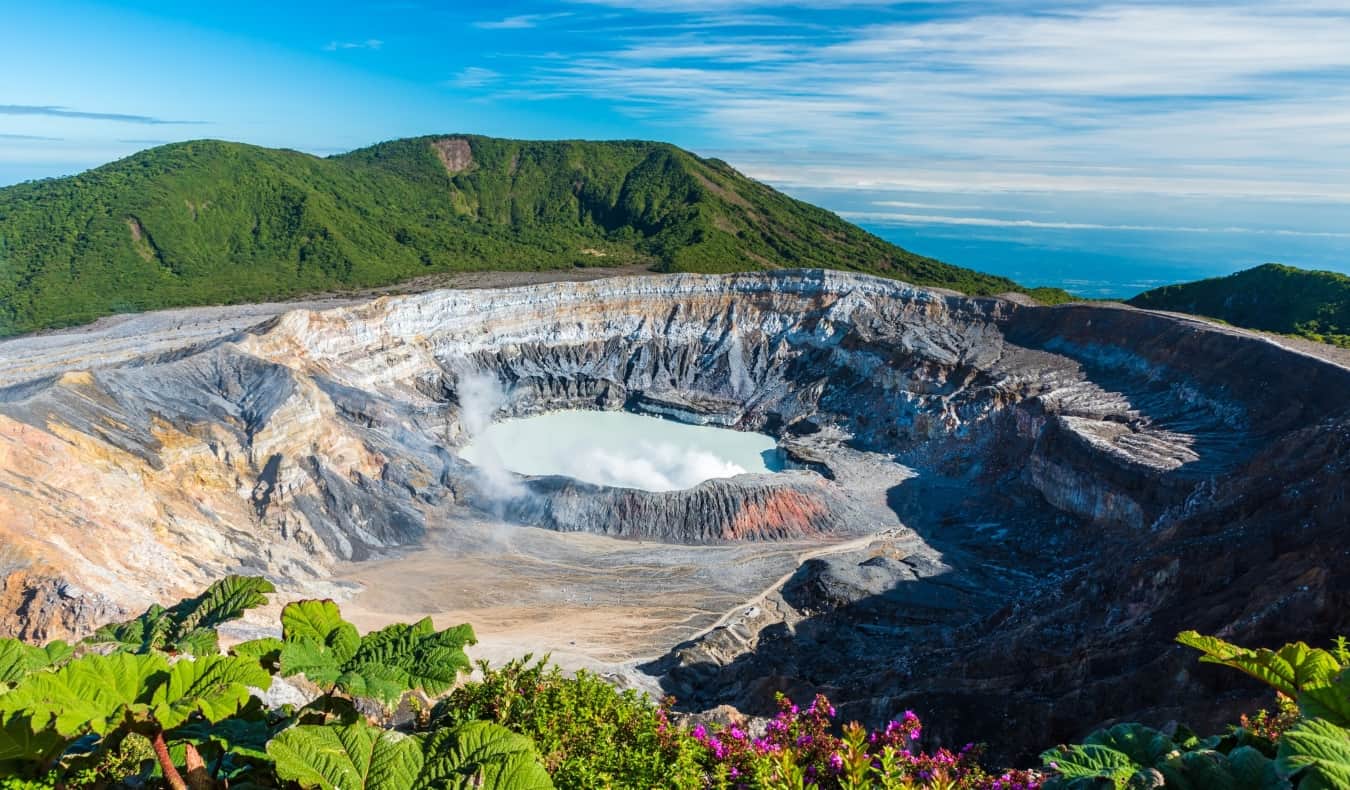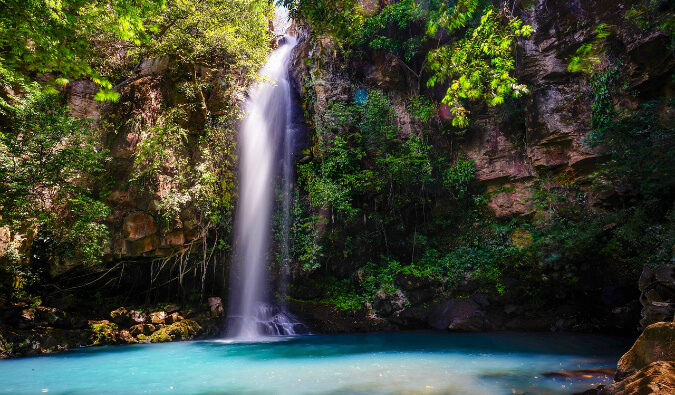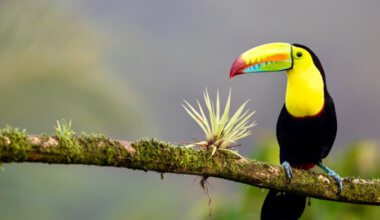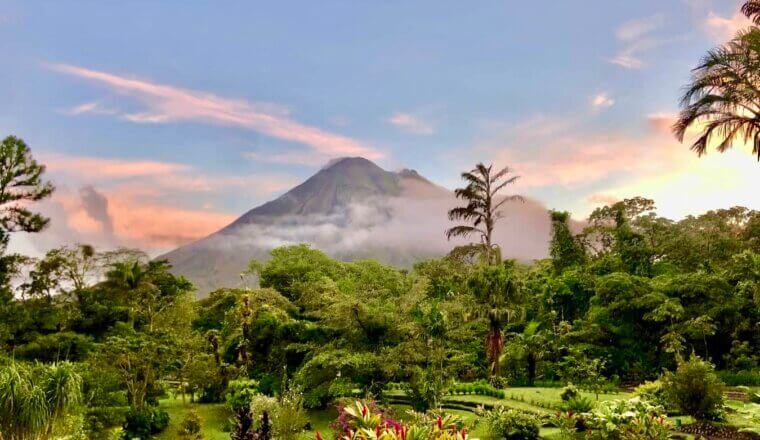
Last Updated: 8/25/2023 | August 25th, 2023
Tropical jungles bursting with wildlife, mountainous landscapes extending into the horizon, picture-perfect beaches on both sides of the country, and a never-ending supply of fun activities no matter your budget.
Costa Rica is a nature lover’s paradise — and it’s one of my favorite countries in the world. It was the first country I ever traveled to and was the country that sparked my wanderlust.
The beaches feel like paradise, there’s great surfing, excellent diving, and plenty of places to get away from the hordes of retired Americans that live here. No matter what your interest, there are tons of things to do in Costa Rica without breaking the bank.
But is Costa Rica safe to visit?
The country was fortunate to escape the Cold War conflicts and brutal gang violence that impacted other countries in Central America. However, in recent years, Costa Rica has become more involved in drug trafficking and money laundering.
Fortunately, the country is still pretty safe for tourists. In fact, it ranks as the safest in Latin America according to the Global Peace Index (Costa Rica ranks 38th, while the USA is 129th, for comparison).
But while Costa Rica is one of the safest countries for travel and backpacking in Central America, that doesn’t mean you should let your guard down. Petty theft is the main issue travelers face, so you’ll want to be are of your belongings and surroundings at all times. In this post, I’ll share some tips and advice to ensure a safe and stress-free visit.
Table of Contents
9 Safety Tips for Costa Rica
1. Avoid isolated areas – If you’re somewhere isolated, you’ll be at a greater risk of getting robbed, especially at night and in big cities. Try to stay where the people are. That’s the best way to avoid being singled out by potential muggers.
2. Don’t wear flashy items – Petty theft is common here, so remove any jewelry or watches before you go out and don’t wave your phone or camera around. Do your best to blend in, so you don’t become a target for pickpockets. If you happen to find yourself a victim of a robbery, follow the instructions of the robber and give up your valuables; these material items can be replaced but your life cannot.
3. Don’t leave your items unattended – If you are spending the day on the beaches in Puerto Viejo, Santa Teresa, or Manuel Antonio, do not leave your belongings unattended while swimming or walking along the sand; locals or tourists alike can easily take your valuables if you leave them around. Just take what you need with you and nothing more.
If you can, hit the beach with fellow travelers so you can each keep an eye on everyone’s things.
4. Be alert when using public transportation – Petty theft (including bag snatching or pickpocketing) is the most common type of crime you’ll face in Costa Rica. Most of the theft in Costa Rica occurs while taking the bus. Keep your bag containing valuables and identification on your lap and stay vigilant. When in restaurants, keep your purse or bag on your lap instead of hanging it on the back of a chair.
5. Always take an authorized taxi – Crimes against cab riders are infrequent here but it’s best you use a licensed taxi. Also, pay close attention to the meter and make sure it’s running properly. Cab drivers can turn the meter off and claim it’s broken (a common scam, see below).
6. Stick to the path – When out hiking, don’t stray off the marked trails. Not only do you risk getting lost, but there are lots of dangerous animals here (including tons of snakes) that can cut short your visit. Whenever possible, hire a guide (recommended not just for safety reasons, as they’ll point out birds and animals in the lush canopy that you otherwise would likely have missed).
7. Don’t bring valuables out with you – In general, it’s a good idea to lock up valuables at the hostel or in a hotel safe instead of carrying items like your credit cards or passports on your person while you’re out and about. It’s also smart to make copies of your documents and not carry all of your money on you in one place. When you head out for the day, bring one credit card and the cash you need for the day and that’s it. That way, if something were to happen you won’t lose everything.
8. Be careful in certain areas – San Jose is mostly used as a stop-over point as people travel the country. While it’s generally safe during the day, be careful at night. Specifically, avoid the areas of Desamparados, La Carpio, Los Guido, Pavas, El Carmen, and Leon XIII.
Puerto Viejo is a fun beach destination but crime and theft is on the uptick here so be aware and never walk around alone at night or leave things unattended on the beach.
Puerto Limon is where most drug activity occurs. While the area is generally safe as long as you’re not involved in anything illegal, it’s good to be extra cautious here.
9. Buy travel insurance – Travel insurance is especially important if you plan to join in on any of the adventure activities that make Costa Rica famous, including ziplining, white water rafting, or surfing. Travel insurance protects you against unexpected costs that could arise due to illness, injury, theft, and cancellations. It’s comprehensive protection in case anything goes wrong. I never go on a trip without it. You shouldn’t either.
I recommend SafetyWing for travelers under 70, while Insure My Trip is the best choice for travelers over 70.
You can use this widget to get a quote for SafetyWing:
For more information on travel insurance, check out these posts:
- What Does Travel Insurance ACTUALLY Cover?
- The Best Travel Insurance Companies
- How to Buy the Best Travel Insurance
Scams to Avoid in Costa Rica
There are really only two common scams found in Costa Rica:
1. The Taxi Scam
You hop into a taxi and realize the meter isn’t running. You mention this to the driver and their response is that the meter is “broken,” and quotes you a price that is outrageously high. Or you might notice that the meter is working but the fare is increasing incredibly fast.
Before hailing a taxi, get an idea of how much a ride should cost from your hostel or hotel staff. In my experience, if the cabbie tries to negotiate the rate, I use the rate quoted to me and if they refuse, I get out and find someone who will turn the meter on. If the meter looks as though it’s rising unusually fast, ask the driver to pull over and get out immediately.
2. The “Cheap Tour” Scam
You’re exploring the sites and sounds of the city and a well-mannered, nicely dressed person approaches you and asks if you’re looking to go on a tour. They do a fantastic job describing the most unforgettable trip you’ll ever take in your life, and at a fraction of the cost of other tour companies. You’re sold and hand them a deposit. You wait the next day for them to pick you up, but no one shows up. You realize there was no amazing tour at 50% off. You’ve been tricked.
To avoid this scam, only use authorized companies when booking tours. Your hostel/hotel can always help you, and if you plan to book through a tour company check their online reviews ahead of time. Never trust someone trying to sell you a tour on the street who does not have an official office or storefront.
These scams are the most common ones you’ll face while in Costa Rica. If you’re worried about scams, read this post on travel scams to avoid. Avoiding travel scams requires a lot of common sense and a healthy dose of suspicion.
Is there a Zika Risk in Costa Rica?
While there are no current reports of a Zika outbreak in the country, Costa Rica has had reported cases of the Zika virus. While risks are low, travelers are advised to take the following precautions:
- Use mosquito repellent on your body to prevent bites and sleep under a mosquito net to avoid getting bit while when you’re asleep
- Wear breathable garments that cover your arms and legs
- Keep doors and windows closed as much as possible to prevent mosquitoes from entering your room
- Pregnant women or couples considering pregnancy should consult a healthcare practitioner prior to travel
Is Street Food in Costa Rica Safe?
In Costa Rica, street food is safe to eat and not to be missed! I’ve had my fair share of empanadas, fresh fruits from open markets, and other local foods and have been perfectly fine.
That being said, if something doesn’t look cooked through (such as chicken) or has been out in the sun for too long, then trust your gut and don’t eat it. But I would encourage you to try the street food as it’s the best way to experience the cuisine and support local businesses (plus, it’s cheap!)
Is the Tap Water Safe to Drink in Costa Rica?
The tap water in Costa Rica is safe to drink, however, it’s recommended that you avoid drinking the tap water in most beach destinations. The best way to make sure your drinking water is safe is to bring a LifeStraw reusable water bottle. They have built-in filters so you can purify your water so you don’t get sick.
Are Taxis in Costa Rica Safe?
The taxis in Costa Rica are safe and reliable, though you’ll always want to make sure you’re getting in an authorized taxi. During the day, you can hail a taxi from the street safely, but make sure you pay attention that the meter is turned on and running properly.
If you’re taking a taxi at night it’s best to have your accommodation call it for you. That will ensure you get a reputable company. Never hail a random taxi at night.
As mentioned earlier, taxi drivers will occasionally try to take advantage of travelers by overcharging them. Always remain alert and if anything feels suspicious ask the driver to stop the cab and get out. Don’t take any chances with your safety.
Is Costa Rica Safe for Solo Travelers?
Costa Rica is a safe country to visit for solo travelers. As long as you stay away from isolated areas, don’t wave your valuables around, and don’t travel alone at night you will be able to avoid the most common dangerous situations.
Additionally, be sure to download offline maps and an offline language app (like Google Translate) so you can look up directions if you get lost or communicate with the locals in an emergency. If you can, try to learn some Spanish before you go too. Even a few key phrases goes a long way!
Is Costa Rica Safe for Solo Female Travelers?
Costa Rica is one of the safest countries in Central America so if you’re new to solo female travel, Costa Rica is a great country to start with. However, you’ll still need to take some precautions of course. Always avoid isolated locations and don’t travel alone after dark. If you happen to experience catcalling or harassment from strangers on the street, be confident, avoid eye contact, and walk away.
Solo female travelers should remain extra vigilant at bus terminals, bars, and taxi stands where harassment is more common. If out at a bar, as with many places, it’s a good idea to watch your drink and never leave it unattended or accept drinks from strangers. When traveling around the city, ask your hotel what the safest route is and also which areas you should avoid.
By taking some precautions and planning accordingly, solo female travelers can have a memorable time in Costa Rica. Just make sure to follow the advice and tips above!
Here are helpful posts on safety written by our solo female travel experts:
- How to Stay Safe as a Solo Female Traveler
- 8 Myths About Solo Female Travel Debunked
- 10 Common Questions About Solo Female Travel
- Women Shouldn’t Be Afraid To Travel Alone
With any tourist destination, you’ll run into people trying to pull fast ones on visitors. By using caution, common sense, and following the tips above, you’ll be able to stay safe and healthy during your visit to Costa Rica. Pura vida!
Book Your Trip to Costa Rica: Logistical Tips and Tricks
Book Your Flight
Use Skyscanner to find a cheap flight. They are my favorite search engine because they search websites and airlines around the globe so you always know no stone is left unturned!
Book Your Accommodation
You can book your hostel with Hostelworld as they have the biggest inventory and best deals. If you want to stay somewhere other than a hostel, use Booking.com as they consistently return the cheapest rates for guesthouses and cheap hotels. My favorite places to stay are:
- Arenal Backpackers Resort (La Fortuna)
- Rocking J’s (Puerto Viejo)
- Pura Natura Lodge (Manuel Antonio)
Don’t Forget Travel Insurance
Travel insurance will protect you against illness, injury, theft, and cancellations. It’s comprehensive protection in case anything goes wrong. I never go on a trip without it as I’ve had to use it many times in the past. My favorite companies that offer the best service and value are:
- Safety Wing (for everyone below 70)
- Insure My Trip (for those over 70)
- Medjet (for additional repatriation coverage)
Looking for the Best Companies to Save Money With?
Check out my resource page for the best companies to use when you travel. I list all the ones I use to save money when I’m on the road. They will save you money when you travel too.
Want More Information on Costa Rica?
Be sure to visit our robust destination guide on Costa Rica for even more planning tips!


